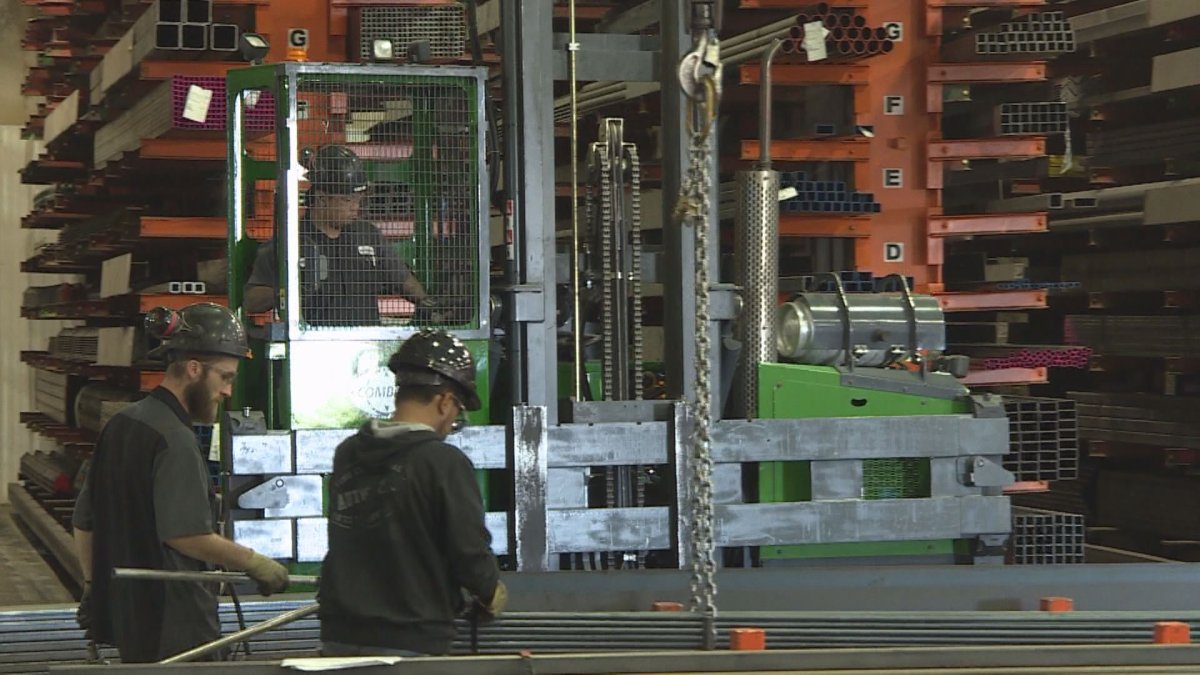A family run steel service centre based in Winnipeg is keeping a careful eye on Canada’s escalating trade war with the United States.

Brunswick Steel buys big volumes of steel products from steel producing mills across North America and then sells it to local customers.
A lot of the steel they buy comes from south of the border.
General Manager Justin Copp said since the tariffs were announced the company has been taking precautions.
“The economies in Canada and the U.S. are so intertwined, it’s hugely problematic,” Copp said. “I think business always finds a way. You know we’re certainly taking precautions and making some adjustments on how we do business, but I wouldn’t say I’m fearful.”
It’s been 12 days since the United States announced tariffs on steel and aluminum imports from Canada. Meaning the cost for steel and aluminum products are going up.
Not just for major industries like the automotive sector, but also for everyday items such as eyeglasses, watches and kitchen utensils.
Copp said he’s crunched the numbers and passing the additional costs to his customers isn’t an option.
“25 per cent in our business is not sustainable. Our margins don’t support that, neither do our customers’ margins, so we can not simply pass those additional costs. I think if that has to happen, it’s going to change the way people buy, it’s going to change the way people manufacturer, they may not choose to manufacture in North America anymore which is the biggest concern.”
Copp added the tariffs could force companies to send more of their products offshore, but he’s hopeful a deal can be struck.
“I’m still optimistic that a deal will be made in relatively short order, because trade is so intertwined in North America. But you know we’re being careful, we’re planning for the worst and hoping for the best, that’s really all you can do.”
The same day the United States announced its tariffs, Prime Minister Justin Trudeau issued $16.6 billion dollars worth of tariffs against U.S. imports.
The retaliatory tariffs are mainly for domestically produced products.
Chuck Davidson, President and CEO of the Manitoba Chambers of Commerce said the province does about $10 billion dollars worth of export trades to the U.S. on an annual basis and it imports about $17 billion dollars worth of goods.
“About 75 per cent of all trade that comes from Manitoba is going to the U.S., so they are our biggest trading partner by far,” Davidson said.
He added it’s paramount to businesses in Manitoba that the two countries maintain a strong relationship.
“We don’t want to see barriers in place that are going to do anything that will hinder that relationship, because from a Manitoba perspective it’s going to impact Manitoba businesses.”
Davidson said businesses are living in a world of uncertainty right now.
“The worst thing you can do for a business climate is have uncertainty,” Davidson explained.
When asked what sector could be next to face tariffs, Davidson said he believed it would be agriculture products.
“I think food production is a natural in terms of agriculture products, that would probably make the most sense, based on rhetoric that you’re hearing from the President in terms of where they might want to go. I think again you’re going to get push back from Canadian businesses and from sectors, to make sure the facts are on the table.”




Comments